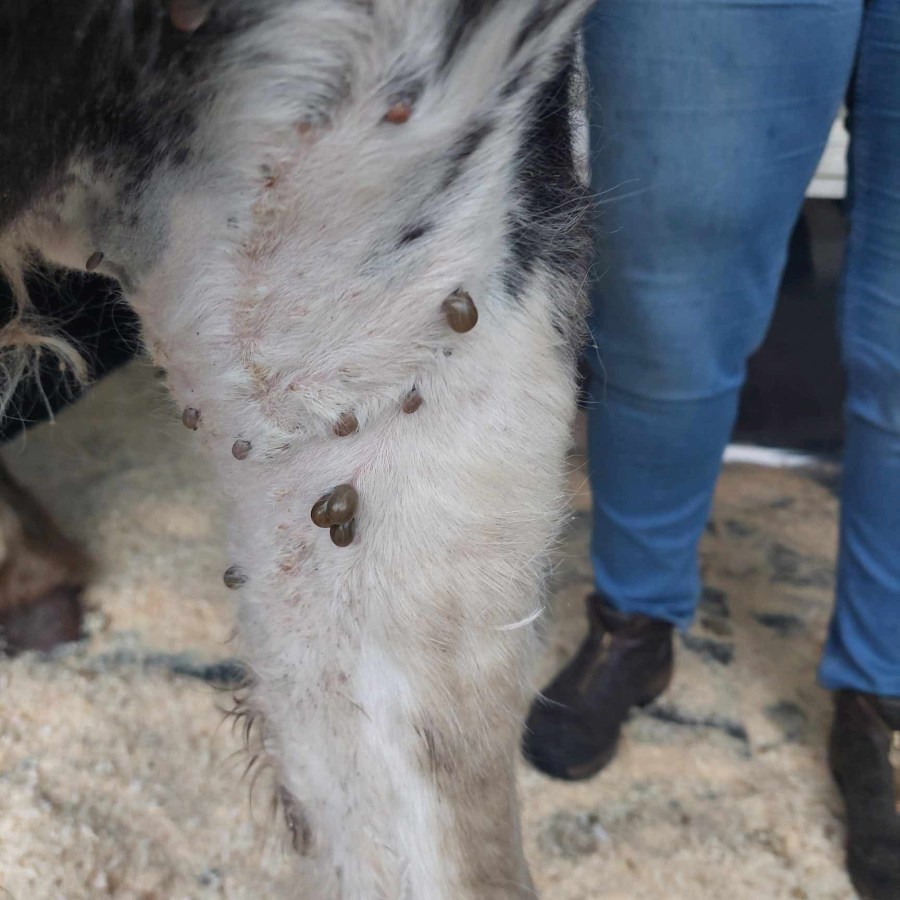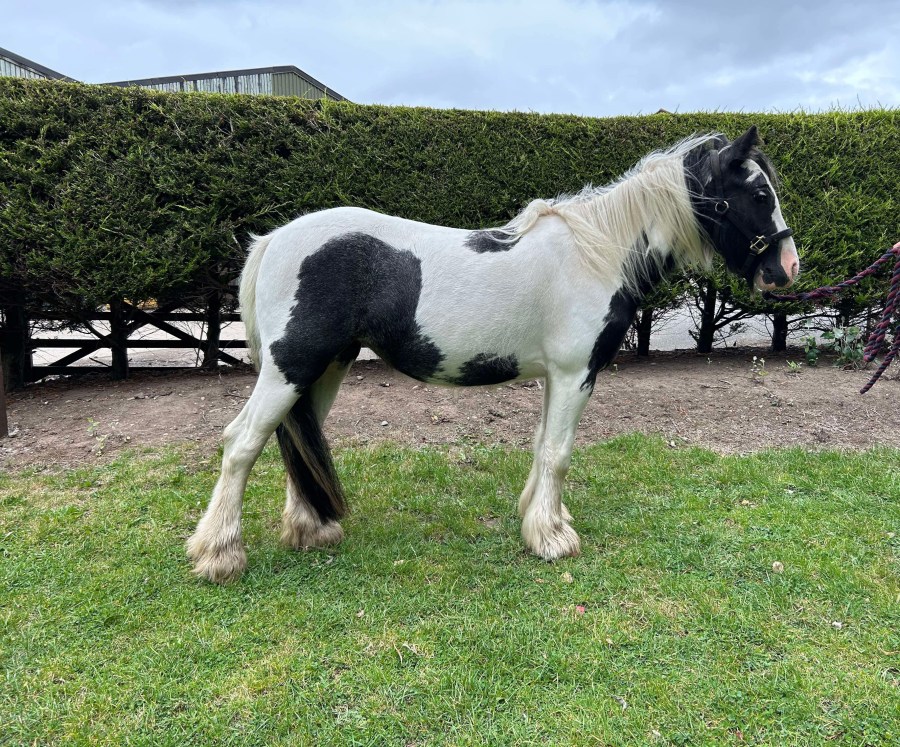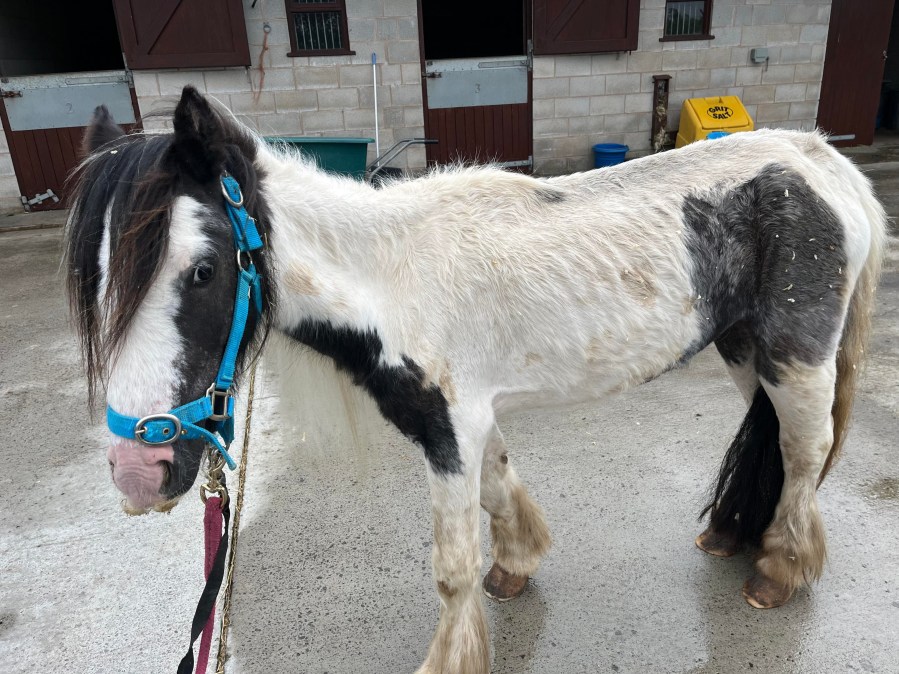A three-year-old filly who was found severely underweight, suffering from a lice infestation and covered in hundreds of ticks is now thriving thanks to the team at World Horse Welfare’s Penny Farm Rescue and Rehoming Centre near Blackpool.
Elouise, a 11.2hh piebald cob, was found on the edge of survival, alone and vulnerable on a fell in Northumberland by a World Horse Welfare field officer after concerns had been raised about her condition. As she had only recently appeared on the fell it is believed she had been abandoned.
As well as being emaciated and suffering with lice and ticks, it was also discovered that Elouise was extremely malnourished and had liver issues. Following intensive veterinary care and considerable care and attention, Elouise has made a remarkable recovery and is a sweet and gentle pony.

About ticks
Ticks are particularly common at this time of year and can be found in wet environments, on grass or in low bushes. They are most often found between March and June and between August and November.
“Ticks are small arachnids (the same class as spiders) and they undergo four phases in their life cycle: egg, larvae, nymphs, and adult. The tick requires blood meals to develop between these phases,” explained Dr Jessica May, customer success manager at PetsApp.
“Ticks can spread disease, usually in the nymph stage of their life cycle and, if female, before they lay their eggs. Tick larvae will also seek blood meals but will not transmit pathogens. It is these pathogens that poisons or irritates its host and can negatively affect horse health.”
Ticks choose their host based in its size. Female ticks prefer larger animals like horses.
“Once the tick has attached itself to a host, it will feed, during which it might transmit pathogens. This can cause skin irritation, bacterial skin infections, and small abscesses. In severe cases, especially in ponies and foals, a tick may even cause anaemia,” continued Jessica.

The average cost of caring for and rehoming a horse at World Horse Welfare is now more than £7,000 per horse per year. To donate to World Horse Welfare, click here.
Images © World Horse Welfare.









